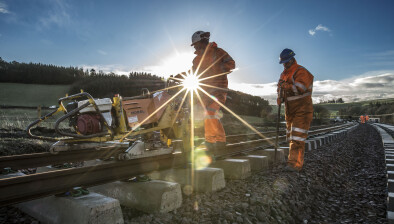Turner & Townsend heralds new era for the cost manager as it unveils its Embodied Carbon Calculator

The new tool is available here
Turner & Townsend has called for a fundamental re-evaluation of the role of the cost manager, as the built environment sector tackles the need to quantify carbon as well as capital cost when planning and delivering new investment.
The global professional services company has launched its Embodied Carbon Calculator, a bespoke software tool that enables clients to evaluate the carbon footprint of projects from an early design stage, covering cradle to practical completion of the product and construction process.
The calculator allows Turner & Townsend’s Cost Managers to benchmark, model and track carbon values for materials across the full cycle of a construction process. The tool is designed to follow established project planning stages, starting from the Royal Institute of British Architects (RIBA) stage 2. It aligns with the Royal Institution of Chartered Surveyors (RICS) New Rules of Measurement 1 (NRM1) and third-party standards such as the UK Green Building Council, as well as benchmarking performance against industry targets proposed by LETI. Turner & Townsend’s ambition is that the tool will allow it to create a market-leading database of global benchmarks and best practice.
The proprietary software fully integrates with the business’s existing benchmarking and cost planning applications, incorporating the management of carbon as a currency seamlessly with its capital equivalent. Both currencies are managed in parallel via the same custom application.
Patricia Moore, UK managing director at Turner & Townsend, said that the launch of the new tool reflected the changing role of the cost manager for a new era: “As the industry commits to meeting net zero, we see a fundamental shift in the role of the Cost Manager to now control and account for the two currencies of construction – cost and carbon. Through the creation of our new Embodied Carbon Calculator, we can ensure that there is clear integration of these priorities on our clients’ projects.
”The investment we have made in our digital capability has enabled us to build an application that can provide consistent and accurate assessments of a project’s embodied carbon count from an early design stage. This will play a vital part in our clients’ journey towards a robust, measurable net zero ambition. Unlocking innovation like this is key to ensuring that our industry is part of the solution to tackling the pressing social, environmental and economic challenges we face.”
Turner & Townsend traces its roots as a traditional quantity surveyor to Darlington in 1946. In recent years the business has delivered a major investment programme to digitise cost management. The Embodied Carbon Calculator is the latest milestone on that journey. The next step in the development of the tool will be to measure operational carbon to provide Turner & Townsend with a digitally enabled whole life carbon capability.
The business’ approach to carbon accounting has three essential features that align with its cost management service: 1) Setting the carbon baseline to serve as a benchmark target; 2) Developing a counting to zero route map to improve the project’s carbon performance; 3) Applying consistent measurement at each of the RIBA work stages to allow greater control and achieve the client’s desired outcome.
Matthew Collins, senior specialist – Construction & Infrastructure Management, RICS, said: “Turner & Townsend’s Embodied Carbon Calculator is exactly what the industry needs to help bring the impacts of embodied carbon to the forefront of discussions with clients and end users. Enabling the embodied carbon of project designs, across all stages, to be measured in accordance with the RICS Professional Statement in Whole Life Carbon Assessment and reported in a consistent way, will allow more informed decisions to be made with respect to cost and carbon. This will help achieve the governmental targets around net zero which have been set both nationally and internationally.”














